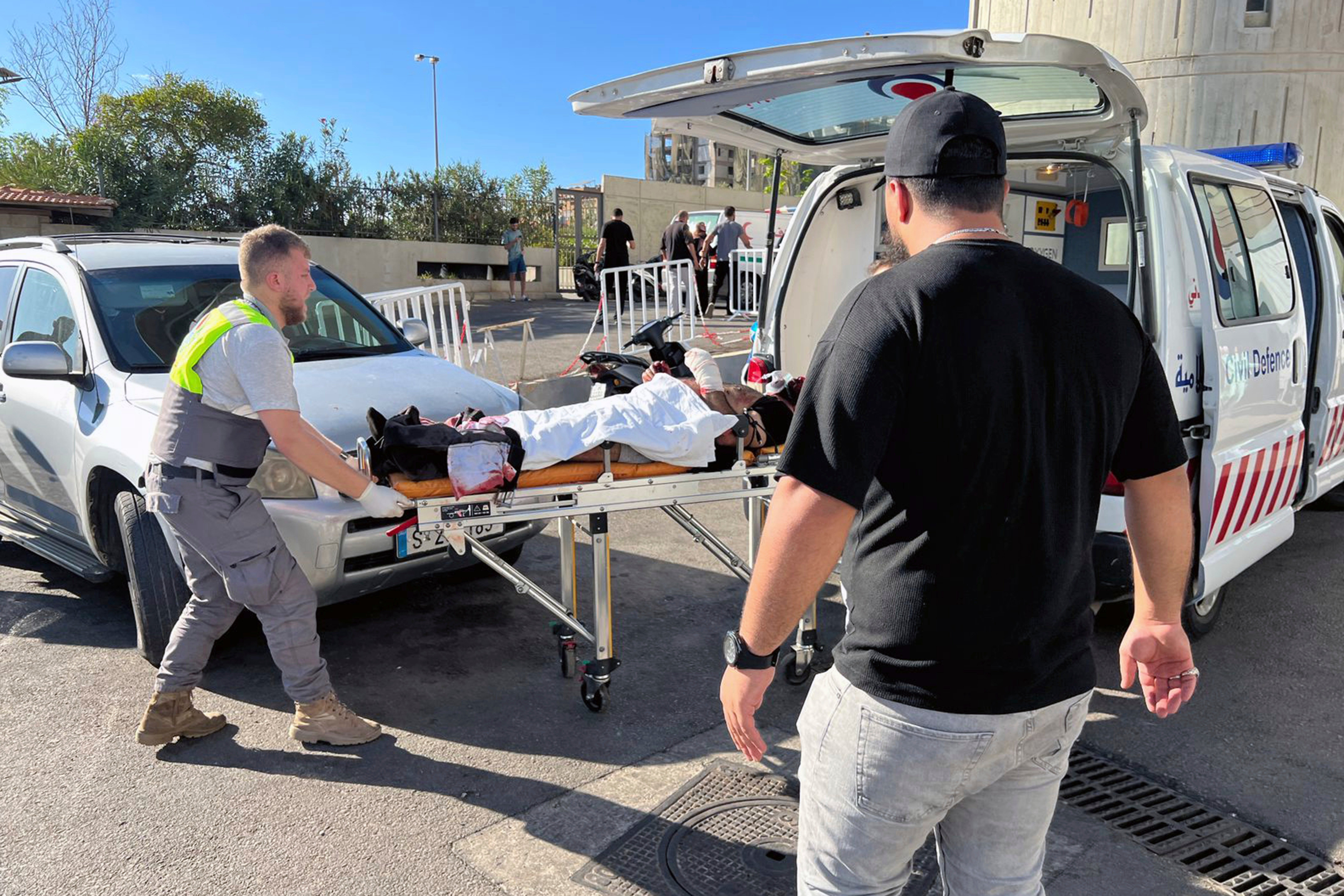Dozens wounded after pagers detonate in Lebanon, media and security officials say
Lebanese state media and security officials say dozens of people have been injured in Beirut’s suburbs after their handheld pagers exploded

Your support helps us to tell the story
From reproductive rights to climate change to Big Tech, The Independent is on the ground when the story is developing. Whether it's investigating the financials of Elon Musk's pro-Trump PAC or producing our latest documentary, 'The A Word', which shines a light on the American women fighting for reproductive rights, we know how important it is to parse out the facts from the messaging.
At such a critical moment in US history, we need reporters on the ground. Your donation allows us to keep sending journalists to speak to both sides of the story.
The Independent is trusted by Americans across the entire political spectrum. And unlike many other quality news outlets, we choose not to lock Americans out of our reporting and analysis with paywalls. We believe quality journalism should be available to everyone, paid for by those who can afford it.
Your support makes all the difference.Dozens of people were wounded in Beirut’s suburbs and other parts of Lebanon after their handheld pagers exploded Tuesday, Lebanese state media and security officials said. It wasn’t immediately clear if people were killed.
A senior military intelligence official and an official with a Lebanese group with knowledge of the situation, both of whom spoke on condition of anonymity because of the sensitivity of the situation said that pagers carried by Hezbollah members were detonated. The second official said it was believed to be an Israeli attack.
The Associated Press reached out to the Israeli military, which declined to comment.
Photos and videos from Beirut’s southern suburbs circulating on social media and in local media showed people lying on the pavement with wounds on their hands or near their pants pockets.
Hezbollah leader Hassan Nasrallah previously warned the group’s members not to carry cellphones, saying that they could be used by Israel to track their movements and to carry out targeted strikes.
Lebanon’s Health Ministry called on all hospitals to be on alert to take in emergency patients and for people who own pagers to get away from them. It also asked health workers to avoid using wireless devices.
AP photographers at area hospitals said the emergency rooms were overloaded with patients, many of them with injuries to their limbs, some in serious condition.
The state-run National News Agency said hospitals in southern Lebanon, the eastern Bekaa Valley and Beirut’s southern suburbs — all areas where Hezbollah has a strong presence — had called on people to donate blood of all types.
The news agency reported that in Beirut’s southern suburbs and other areas “the handheld pagers system was detonated using advanced technology, and dozens of injuries were reported.”
A Hezbollah official said that at least 150 people, including members of the group, were wounded in different parts of Lebanon when the pagers they were carrying exploded. The official, who spoke on condition of anonymity because he was not authorized to speak to the media, said the explosions were the result of “a security operation that targeted the devices.”
“The enemy (Israel) stands behind this security incident,” the official said, without elaborating. He added that the new pagers that Hezbollah members were carrying had lithium batteries that apparently exploded.
Lithium batteries, when overheated, can smoke, melt and even catch on fire. Rechargeable lithium batteries are used in consumer products ranging from cellphones and laptops to electric cars. Lithium battery fires can burn up to 590 C (1,100 F).
The incident comes at a time of heightened tensions between Lebanon and Israel. The Lebanese militant group Hezbollah and Israeli forces have been clashing near-daily for more than 11 months against the backdrop of war between Israel and Hezbollah ally Hamas in Gaza.
The clashes have killed hundreds in Lebanon and dozens in Israel and displaced tens of thousands on both sides of the border.
___
Abby Sewell and Kareem Chehayeb in Beirut, and Josef Federman, in Jerusalem, contributed to this report.